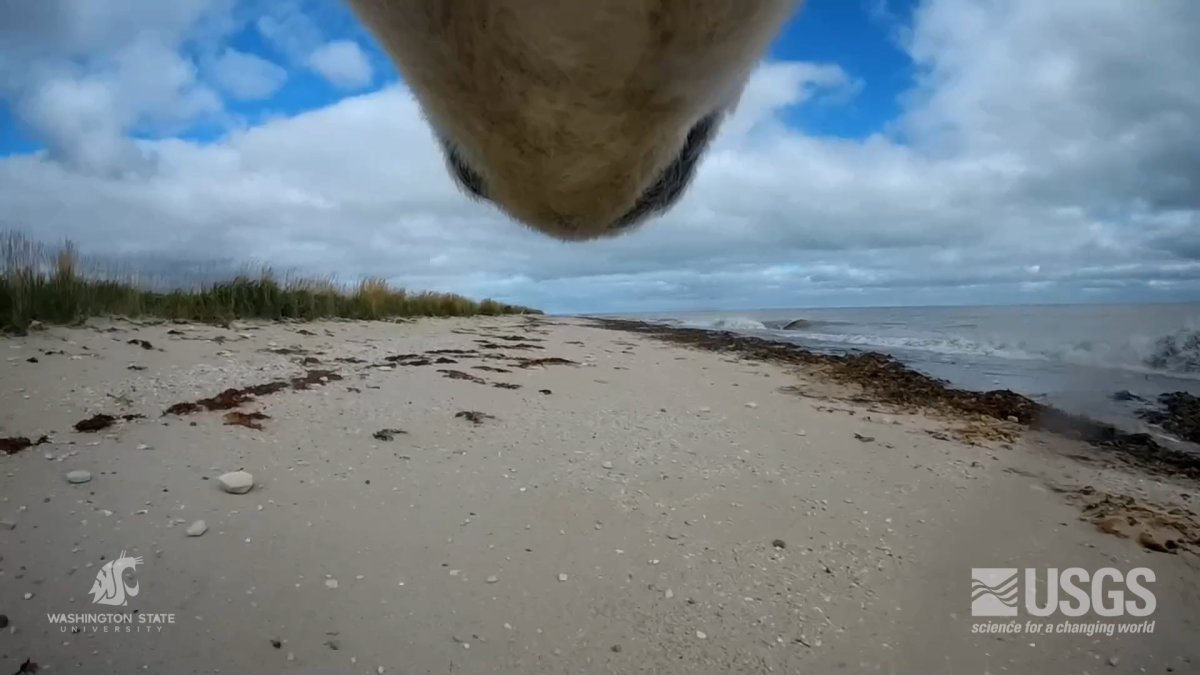Scientists have issued a dire warning over the survival of polar bears as a previous theory that the species may adapt to warming temperatures has been scrapped.
As climate change continues to put the ice-reliant animals in jeopardy, some experts have previously theorized that they may, in fact, adapt to living with less ice. They believe the species may, with time, start adapting traits from their relatives, the grizzly bear, and begin resting for long periods or switching their diet to land-based animals.
But a new study published in the journal Nature Communications, suggests otherwise. Scientists assessed 20 polar bears during three weeks in the summer in the western Hudson Bay region of Manitoba, Canada. All of these polar bears tried different ways of maintaining energy, including resting, scavenging food, and foraging. However, scientists observed rapid weight loss in all of them—around 2.2 pounds a day.
“Our results support previous studies that have indicated that where polar bears are spending longer periods summering onshore, that they will lose increasing amounts of weight the longer they are onshore,” Karyn D. Rode, a research wildlife biologist at the U.S. Geological Survey’s Alaska Science Center, told Newsweek. “Because this weight loss is occurring prior to females entering their dens, it is likely to have impacts on reproduction.
“Although summer sea ice loss has resulted in bears summering onshore for longer periods in many parts of their range, there are areas of the Arctic where the majority of bears are still summering on sea ice. In addition, there are some populations that have access to marine mammal carcasses, such as whales, while on shore which will help them offset weight loss. But in Hudson Bay, where our study occurred, bears do not currently have these types of marine resources onshore and are likely to be negatively impacted by longer ice-free periods.”
Polar bears use the ice to hunt for food, which usually includes seals and other marine creatures. The species tend to eat very little in the summer months when there is less ice. Warming temperatures, however, are becoming more common all years round.
David McGeachy
In Hudson Bay, the ice starts melting around April and is usually completely gone by July. During this time, the polar bears migrate closer to the shoreline. They return to Hudson Bay when the ice returns.
However, as climate change intensifies, the Hudson Bay ice is not returning as quickly as it used to.
“Neither strategy will allow polar bears to exist on land beyond a certain amount of time. Even those bears that were foraging lost body weight at the same rate as those that laid down,” Charles Robbins, director of the Washington State University Bear Center and co-author of the study, said in a summary of the findings. “Polar bears are not grizzly bears wearing white coats. They’re very, very different.”
Polar bears differ from grizzly bears due to their size. While grizzly bears can reach 8 feet in length and weight 800 pounds, polar bears are larger, reaching around 10 feet in length and weighing 1,500 pounds, according to the study. This means maintaining their energy require different techniques. Seals are a rich and fatty energy source, which allows them to maintain energy.

U.S. Geological Survey and Washington State University
Using GPS collars on the polar bears, scientists assessed how they hunted when there was no access to seals. They also weighed the bears before and after the study period.
“Our results suggest that polar bears cannot alter their behavior or energetics in ways that can prevent weight loss when summering on land and that, in most cases, the resources available on land are insufficient to counteract weight loss,” Rode told Newsweek. “In our study, the energy bears obtained from feeding on land was negated by the energy they used to find and acquire those foods.”
They found a different range of behaviors. While some polar bears conserved energy by resting, others continued to search for food on land. The prey they ate were usually birds and caribous, as well as berries and grasses, the study said.
“We found a real diversity of bear behaviors and, as a result, we saw a diverse range of energy expenditures,” lead author Anthony Pagano, research wildlife biologist with the U.S. Geological Survey Polar Bear Research Program and former WSU post-doctoral researcher said in a summary of the findings.
“The terrestrial foods did give them some energetic benefit but, ultimately, the bears had to spend more energy to access those resources.”
Even though some of the female bears spent 40 percent of their time foraging in some cases, the scientists found it still did not give them sufficient energy.
The scientists also recorded three polar bears swimming 110 miles across the bay for a beluga whale and seal carcass, however they couldn’t feed on them while they swam, and they could not take them back to the shore.
The scientists only found one bear that gained weight, and this was only because it happened across a dead marine mammal that had washed ashore.
Do you have a tip on a science story that Newsweek should be covering? Do you have a question about polar bears? Let us know via [email protected].
Uncommon Knowledge
Newsweek is committed to challenging conventional wisdom and finding connections in the search for common ground.
Newsweek is committed to challenging conventional wisdom and finding connections in the search for common ground.


